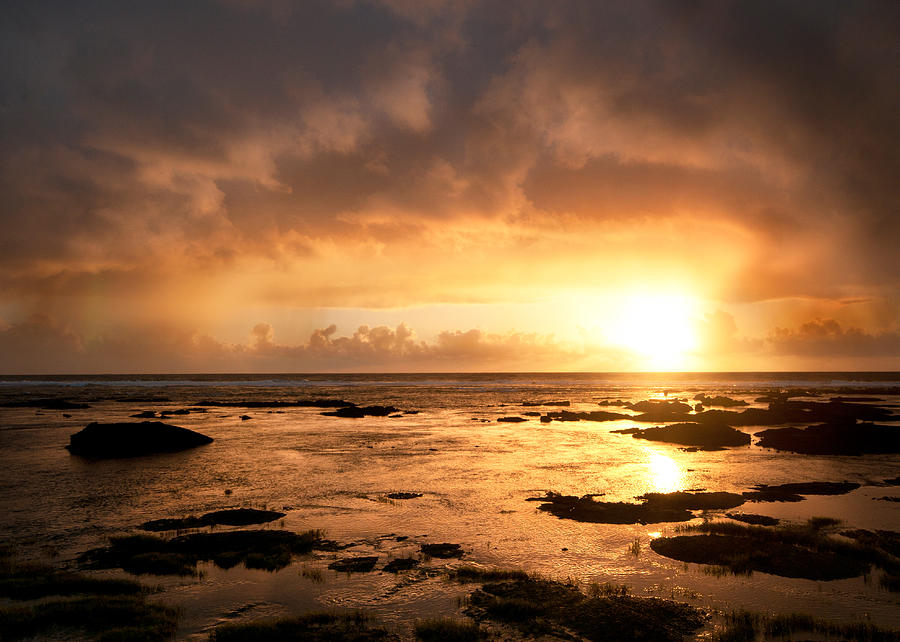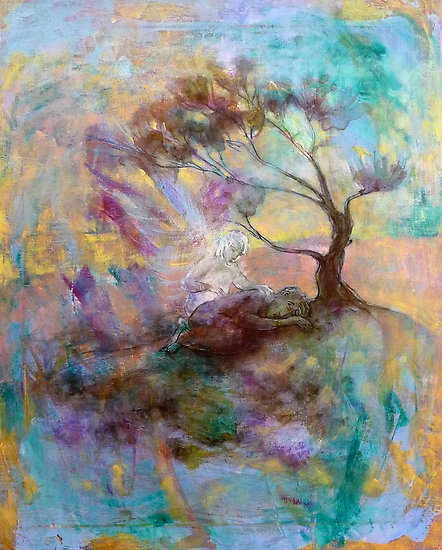The eye of the storm
1 Kings 19: 1-15a
New Ark United Church of Christ, Newark, DE
June 19, 2016

First of all, let me say that yes, I am going to talk about Orlando, that violent storm amongst others that we are all living through right now. You may be wondering what in the world this story about the prophet Elijah has to do with that. So I invite you to journey with me through this text. But first let’s go back one chapter and then some to get the backstory.
The
story takes place in Samaria, the capital of the northern kingdom of
Israel. Under the kingships of David and
Solomon, the twelve tribes of Jacob, whom God named Israel, were united. But after the death of King Solomon, the ten
northern tribes rebelled against the royal line of David and initiated their
own kingdom and named it Israel. The
southern tribes of Judah and Benjamin continued the line of David and called
their kingdom Judah, with its capital in Jerusalem.
Our
story picks up Israel’s history with King Ahab as king of Israel in the 9th
century BCE. Like many dynastic nations
who want to add strength and stability, King Ahab marries a foreign queen, the
infamous Jezebel. She brings with her
the god Ba’al; God’s people now must worship both Ba’al and Yahweh. But not on Elijah’s watch. Elijah challenges the prophets of Ba’al to a
showdown—god against God. You can guess
how that turned out: Ba’al’s power never
showed up while Yahweh rained down fire and blew away the competition. Elijah then had the prophets of Ba’al and the
goddess Asherah—all 950 of them—killed.
Jezebel had already ordered the deaths of Israel’s prophets, so like an
eye-for-an-eye, the whole world goes blind.
The episode ends with Elijah running strong in front of Ahab’s chariot
as Ahab travels to his palace in Jezreel.
 |
| Elijah under the broom tree |
Now
our hero is running for his life.
Jezebel swears by her gods that she will end him. So Elijah
assumes that this is it, he’s out, he’s quitting, he’s done all he can. He goes out into the desert, lies down under
a tree, and asks God to take his life.
And like a good Jewish mother, God thinks “When was the last time he
ate? Maybe he’s just hungry”, and sends
an angel with some fresh bread baked on hot desert rocks and a jar of water to
nourish Elijah not just once but twice.
The journey will be long and God wants Elijah to live.
When Elijah reaches Mt. Horeb, God’s holy mountain, he’s
still sticking to his story: “God, I’ve
been passionate about you and your word.
Everyone else has either abandoned you or has been killed. I’m the only one who’s left, and now I’m
about to be killed off as well.” Elijah
is not only afraid but grieved, pained that he is the only prophet left and
about to die. He's got survivor's guilt. It’s as if he’s failed
God. God then tells Elijah that she is
about to pass by. Suddenly there is a
violent wind, then an earthquake, and last a fire. Yes, earth, wind, and fire. Knowing the Israelite history well, Elijah
expects God to show up in one of these.
But no; rather, God arrives in a mighty silence.
Here God
shows up in the eye of the storm, where it is clear and quiet. The storm is still out there. Jezebel is hungry for vengeance; Elijah’s
life is still in danger. God’s people
are divided. God still has work for
Elijah to do. And we witness this violent
storm, this vengeance and rage every day, on the roads we drive, in social
media and in politics and the public square, perhaps even in our extended
families and friendships. But before we
start identifying ourselves with Elijah in our feelings of being overwhelmed,
of despair and hopelessness in the face of what appears to be unending
violence, hatred, and bloodshed, let us be mindful that many of us here are not
objects of hate and prejudice because of who we are and who we love.

It was
not our sanctuary, our safe haven that was violated. It was not our community that was told it
couldn’t donate blood to help its own.
It was not our religion that was vilified once again. It was not our gender or sexual orientation,
it was not our queerness combined with the color of our skin and our Latin heritage that became a
target for someone else’s brokenness and inability to deal with his own
sexuality and pain.
Of
course we are frustrated and angry that once again, someone legally purchased a
firearm and used it against innocent human beings. We want desperately to do something, to stop
this madness; that when we say enough is enough, we would never have to say it
again.
Vamping up
the fight to prevent gun violence is indeed something we can do. However, the root causes of violence are
still present, and those are hate and fear.
And those are spiritual problems, community problems, human
problems. That is something that faith
communities can not only speak to but act on as well.
African-American
novelist and poet, James Baldwin, who was also gay, wrote: “I imagine one of the reasons people cling to
their hates so stubbornly is because they sense, once hate is gone, they will
be forced to deal with pain.” Pain can
overwhelm all of us. It can drive us to
despair and hopelessness, as it did Elijah.
It can drive us to anger, hatred, fear of the other, and violence, as it
did Jezebel and Omar Mateen. But it can
also drive us toward community, which is what the nightclub Pulse provided for
its clientele and for the city of Orlando.
Pain can drive us to confront ourselves and our own fears. “What are you doing here, Elijah?” Pain, in the midst of community, reminds us
that there is still work to be done, there is healing still needed, there is
still forgiveness to be had and given.
If we as
a faith community, as the Body of Christ, as church are going to do something not
only about our own pain but to help heal the pain of others, then we need to be
the eye in the storm, that place of peace and calm, that sanctuary, that safe
haven that is open and welcome to all and visibly so. In the almost 26 years that this church has
been Open and Affirming, last Sunday was the first time this church displayed a
rainbow flag on Main St.

As Olivia and I taped it to the A-frame sign
that afternoon, people stopped to thank us.
When I got a pole for it on Tuesday, a couple stopped to take a picture
of it with the church sign. A few folks
honked from their cars. A friend from
Rainbow Chorale stopped by my office this week to tell me how much it means to
see the flag here in Newark, not just in Rehoboth.
Declaring ourselves to be Open and Affirming on
our website and on our Facebook page is good, very good, but not enough. Having a rainbow flag displayed on Main St.
says that we have come out. It means
that if we openly welcome LGBTQ folks, the message is that there is room for my
quirks and your eccentricity and someone else’s weirdness.
Folks who still feel like they have to guard
their every move shouldn’t have to make one extra step to find out if they are
welcome in our church. It should be
plainly obvious. For too long churches
have put out “All are welcome” signs, only for LGBTQ folks to find out
painfully that it didn’t mean them. For
too long churches have actively discriminated against and loudly proclaimed
damnation against LGBTQ persons, using the Bible as a weapon and its words as
bullets. For too long LGBTQ people have
had to fight for themselves, to find their own sanctuaries when Christians
kicked them out of theirs. For too long
Church has sat on the fence. For too
long well-meaning people like us have been silent.
Church has done enough to hurt. And we are sorry for all the hateful things
that have been done in the name of the One who is Love. Now it’s time we help with the healing. And the speaking out and speaking up. And taking Pride and having courage. Now it’s time we stick our necks out for
those whose necks have been on the line for too long.
It’s time we were the eye in the storm for
those who need peace, and that we head back out into the still-raging
storm. The hunger for vengeance is insidious. Lives are on the line. God’s people are divided. Pain is everywhere. God still has work for us to do. God’s dream is that there be neither Jew nor
Greek, male nor female, slave nor free, gay nor straight, black nor white, but
it’s not done yet. Thanks be to God we
have each other, that one day, love will indeed win. Amen.





Comments
Post a Comment